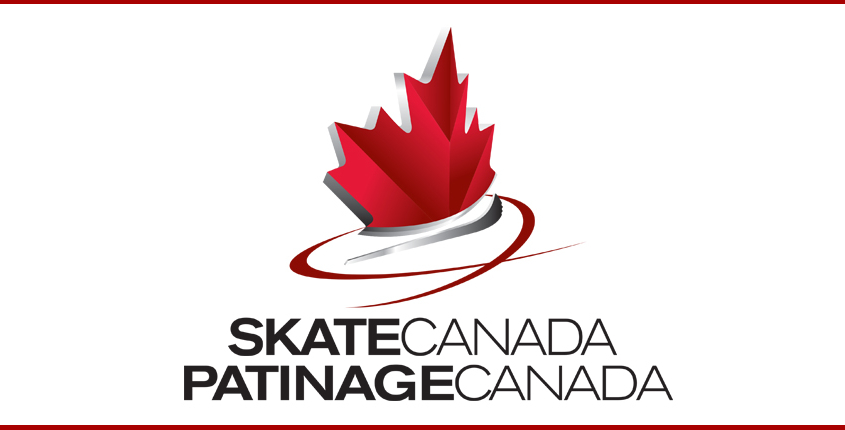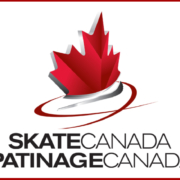The story of an official, the unsung heroes of figure skating
The officials of figure skating are a diverse bunch, often misunderstood, often underestimated, sometimes undervalued.
They are the glue that holds the sport together, but they sit seemingly silently in their seats, judging what they see, figuring it all out, pushing all the buttons, letting their fingers do the talking. What would a figure skating competition be without them?
They are the sport’s guidebooks. They know all the rules. They impart them, offer a helpful hand to developing skaters through monitoring, and they share in the moments of a rockin’ good skate.
They are unpaid volunteers. They give up all of their holiday time to offer up their services, even sitting on committees to further the sport. Some, like Olympic judge Karen Howard, a teacher in Regina, Saskatchewan, says she doesn’t mind not being paid to judge. But she goes further. She has an agreement with her local school board to give up 10 per cent of her salary to allow her an extra 20 days a year to use for judging days. She’s missed some crucial basketball games, played by her daughters. It helps to have a supportive family.
It’s a price they are willing to pay. Judge Andre-Marc Allain won’t call it a sacrifice. A marketing/communications director for a department of the federal government, Allain looks at his judging career as an investment in pursuing a passion.
There is a common theme that keeps recurring with skating officials: volunteerism is a motivator. When Allain wrapped up his skating career in Moncton, N.B., at 16, he felt a sense of duty to give back to the community. And he had a mentor, Geraldine Leger, who had been the first triple-gold test judge from New Brunswick, who saw the potential in him to judge. Now he’s been doing it for 26 years.
Howard came from Melville, population 5,000, where volunteerism is a way of life. “Having good role models who were always out at our test days and judging, that really hooked me,” she said.
Howard, too, began work to become a judge at 16, the youngest you can be. She had already started to do the preparatory work before the magic birthday. Sometimes, she missed the odd school day to do some trial judging. Her parents were always supportive.
It’s not easy to become a judge, particularly in Canada. And it takes time, as candidates gradually advance, taking clinics and workshops and seminars along the way. It took Howard 18 years before she got her first international assignment. It took Allain about 15.
Howard has now been judging for 32 years, 14 of them internationally. Although she has never judged a world championship, she was on the Olympic panel for the women’s event in Sochi. It’s important, along the way, she said, to “develop a thick outer skin,” to judge with confidence and conviction.
By the end of last season, Canada had 1,640 accredited officials, when you take into account all the judges from pairs, singles and ice dancing and synchronized skating and the technical controllers and specialists. And don’t ever forget the data specialists, says Norm Proft, the former officials program manager for Skate Canada. They take all the numbers from the officials and run the software that does the ultimate calculation.
“If you’re going to talk about the unsung heroes of the skating world, you’re talking about data specialists,” Proft said. Why? If skater No. 1 takes to the ice at 8 a.m., the data specialist is at the rink at 5:30 a.m., setting up equipment. If the last skater finishes at 9 p.m, the data specialist will be there for another hour, finishing up.
“The majority of the work they perform occurs in the back room where you can’t even see the ice,” Proft said. “If the data specialists have done a great job, nobody knows that they’re there.” It takes a special kind of personality to do the job well, he added: they are sticklers for detail and accuracy and they have an abiding knowledge of rules and process.
What many people don’t realize is that the skating sections across the country create the judges from the ground up. Skate Canada benefits from the enormous work done by the sections to bring judges through the rudimentary levels. Skate Canada may do five competitions, such as Challenge, the Canadian championships, Skate Canada International, synchronized skating championships in a season: a section might do that many competitions in a month.
And judges at these lower levels are needed. While Skate Canada has about 2,500 competitive skaters, there are 27,000 recreational skaters, doing competitions, too. “As an official, it’s an honour to be part of that child’s moment,” said Proft, who is an accredited technical controller and specialist. “As an official, you want the focus to stay on the child. If you do your job right, the kid can compete, get a hug from their coach, get a hug from their parent, they look at the results and then they go to Dairy Queen.”
This season for the first time, the International Skating Union administered the test for international and ISU judges, all to make the level of judging more consistent. In other years, federations would test and accredit their own judges and then recommend them to the ISU. Now countries recommend judges to the ISU to take a three-day clinic in Frankfurt, Germany. “It’s intense,” Howard says. There is trial judging, a written exam, too and element identification.
However, Skate Canada rigorously tests its judges even before they go for ISU testing. “We like to say we have the best officials in the world,” Proft says. “As part of their education, a great deal of attention is paid to ethics. We’re proud of the level of ethics as demonstrated by our officials – not to say that other countries don’t.” Some countries have a much more rigorous examination process than others, and perhaps more resources.
Howard says the Canadian test is perhaps even tougher than the ones given at the Frankfurt seminar. She took over the writing of that Canadian exam, and feels it’s better that officials are well prepared for the ISU test. “I call it a challenging exam,” Howard said. “It makes you think.”
Allain who is a certified international judge and technical controller and specialist in various disciplines, including ice dancing, would love to judge at an Olympics, like Howard, but “I get the same level of fulfillment and excitement when I do regional and club events,” he said.
And Howard? She returned home from Sochi to judge the Canadian adult championships in Regina. Suddenly, she was judging women who were her age or older. “To see the joy and passion that they had in their performances and their skating, I thought what a great way to tie this amazing year together,” she said.
*** Officials are an integral part of our sport; their dedication to the success of our athletes is evident through the countless hours they spend each year servicing our competitions and test days. Take this opportunity to thank an official!
If you are interested in becoming an official contact your section office to get started!
Beverley Smith






Leave a Reply
Want to join the discussion?Feel free to contribute!